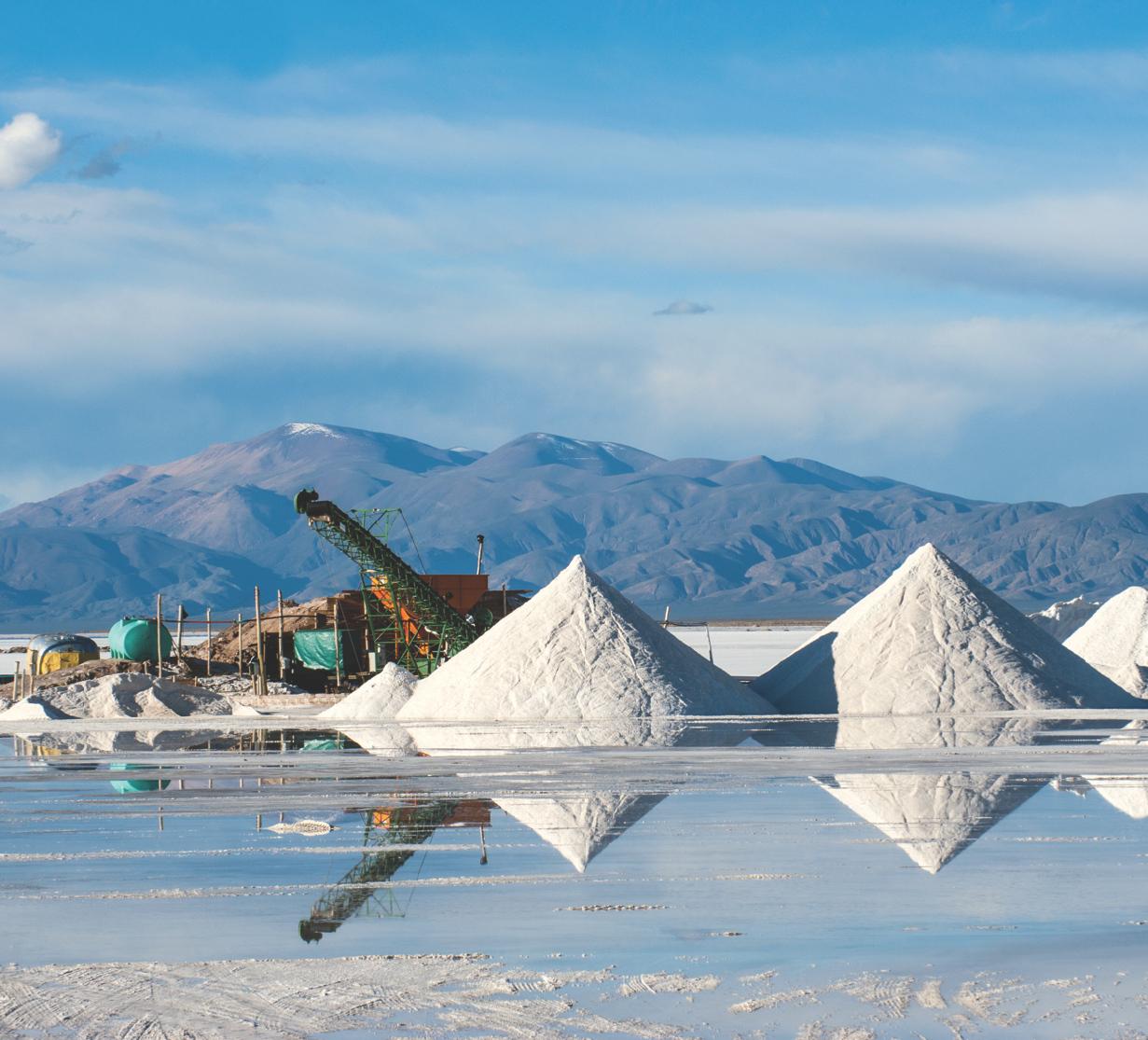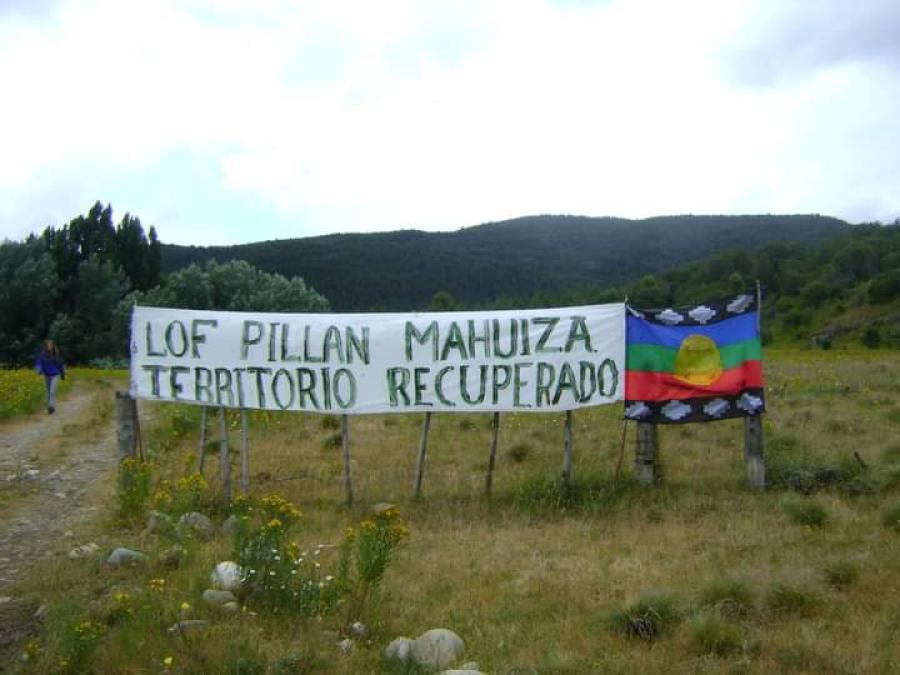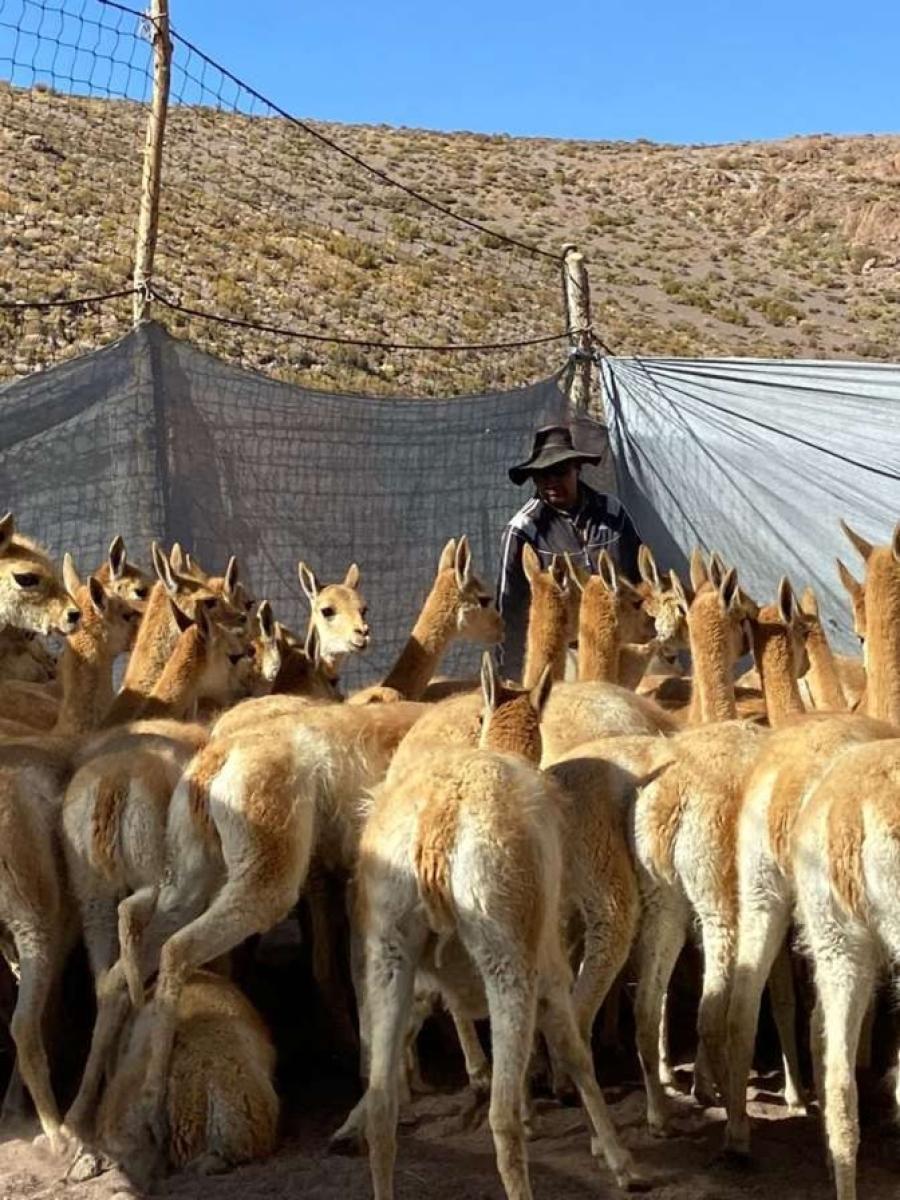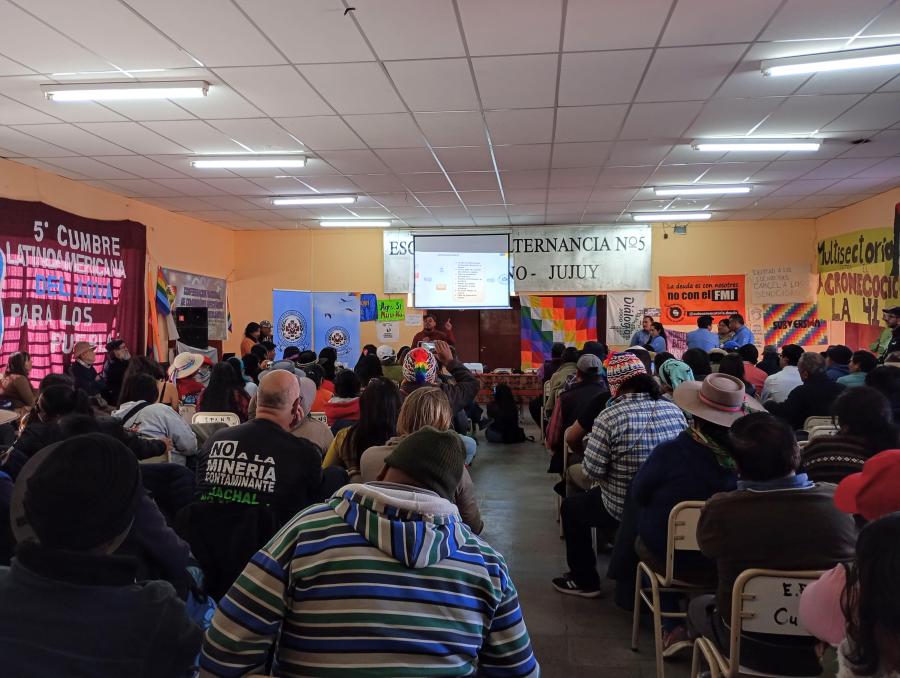
Today, we take the floor on behalf of various Indigenous communities from the territory currently known as the Argentine Republic, who unfortunately could not be present here. We seek to convey their words in order to make known the persecution, violence, and dispossession that our brothers and sisters are suffering because of an extractivism that is disguised as "green", but which in reality responds to the same capitalist logic that has justified the destruction of our communities for more than five centuries.
In recent decades, in an attempt to reduce the greenhouse gasses that cause climate change, the industrial powers have turned to what they call an energy transition. Their objective is to switch from burning fossil fuels to produce what they call "clean energy". While these forms of energy production are presented as environmentally friendly, because they do not generate huge amounts of carbon dioxide, they require a series of minerals whose extraction destroys not only the Earth but also the communities living near these operations.
It is estimated that more than half of the so-called transition minerals are found in Indigenous territories. This is the case of lithium, an essential mineral for the production of batteries used in mobile phones, electric vehicles, satellites, and military aircraft. Around 65% of the world's lithium is found in the so-called "lithium triangle", a region that encompasses southwestern Bolivia, northern Chile, and a large part of northwestern Argentina. The regions where these reserves are located have an arid, dry climate with extreme temperatures, which is in a delicate water and environmental balance. Such territories have been inhabited and cared for by Indigenous communities for millennia.
Evaporitic lithium extraction is sold as "clean", but its defenders do not make clear that more than two million liters of water are used to extract one ton of lithium. In areas such as those mentioned above, this abuse of water resources leads to the drying up of meadows, rivers and underground reserves, creating an imbalance that can destroy life in these areas.
The communities, aware of this threat, and of their rights granted by international conventions and ratified by the national government, demand compliance with the right to Free, Prior and Informed Consent, and respect for their decisions over their territories and resources.
The Indigenous Communities in Argentina make public the lack of respect for the human rights of Indigenous communities by the companies involved in the extraction of lithium in the provinces of Catamarca, Salta, and Jujuy. In particular, we would like to highlight the failure of the governments of Catamarca, Salta and Jujuy to comply with ILO Convention 169, ratified in Argentina by National Law 24071. Article 128 of the National Constitution states that "Provincial governors are natural agents of the federal government to enforce the Constitution and the laws of the Nation". The legal mandate establishes that it is the provinces who must carry out the Consultation with the Indigenous communities when a company proposes to enter Indigenous community territories.
These days, it is public knowledge that institutional violence has been exercised against members of the Peñas Negras Indigenous Community in Catamarca, in particular towards Mr. Felix Escalante, who was beaten by police officers of Catamarca when geologists from the company ELEVADO GOLD sought to enter the indigenous territories to work, despite the fact that members of the community, including Mr. Felix Escalante, loudly expressed "There is no permission!".
This is a current case in which the human rights of the Peñas Negras Indigenous Community in Catamarca Argentina are not respected, and even less the Indigenous Consultation of the ILO Convention 169 is complied with. We invite international human rights organizations to visit the provinces of Catamarca, Salta and Jujuy in order to learn on site about these violations of the human rights of the Indigenous inhabitants.
Raul Sajama
Angosto El Perchel Indigenous Community
Anastasio Vilca
Federation of Indigenous Communities of Salta
Photo courtesy of Earthworks.



